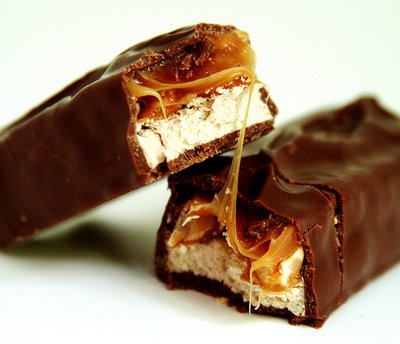|
home | what's new | other sites | contact | about |
||
|
Word Gems exploring self-realization, sacred personhood, and full humanity
return to the main-page article on "Satan"
Many noted teachers have pondered the mystery of Evil's allure. Why are we impressed with it? Below, I offer two excerpts from my own writings relating to the seductiveness of Evil and the seeming-weakness of Good.
"Worship" derives from an old English word meaning "worth-ship," that is, something to which one ascribes greatest worth. And, for most, in terms of practical effect, such assignment of value would not be their assessment of God. Believe what people do in their daily lives, more than their ritualistic chantings. As we've discussed, people view God as unreliable, as opposed to the can-do Satan. I invite you to consider these excerpts from a discussion on the nature of Evil:
Evil may be a slow-moving fungus that takes over the world, but why do we permit this suffocation by degrees? The issue is not straight-forward. Evil, in its beginnings, does not appear to be Evil. It seems to be a short-cut to good things.
Evil is a honey trap Laura Miller: Desire acts as a honey trap to the unwary male, luring him into unworthy and catastrophic enterprises. The beauty of the Narnian witches isn't ancillary to their evil, but integral to it, one of the weapons in their arsenal. Evil must, after all, appear attractive if it's going to be tempting.
William Shakespeare: The devil is a gentleman.
Talmud: Evil is sweet in the beginning but bitter in the end.
Simone Weil: Evil, when we are in its power, is not felt as evil, but as a necessity, even a duty.
Paul Johnson: Hitler's artistic approach was absolutely central to his success. Lenin's religious-type fanaticism would never have worked in Germany. The Germans were the best-educated nation in the world. To conquer their minds was very difficult. Their hearts, their sensibilities, were easier targets ... In a rare moment of frankness, Lenin once said that only a country like Russia could have [been] captured so easily ... as he took it. Germany was a different proposition. It could not be raped. It had to be seduced.
 Mary Wollstonecraft Shelley: No man chooses evil because it is evil; he only mistakes it for happiness.
Mohandas Gandhi: I object to violence because when it appears to do good, the good is only temporary; the evil it does is permanent.
Scott Alexander: All good is hard. All evil is easy. Dying, losing, cheating, and mediocrity is easy. Stay away from easy.
August Strindberg: Now I know the full power of evil. It makes ugliness seem beautiful and goodness seem ugly and weak.
Blaise Pascal: Evil is easy, and has infinite forms.
Evil smiles and smiles - is such a nice young man!
William Shakespeare, Hamlet: "One may smile, and smile, and be a villain!"
Henry David Thoreau: Beware of all enterprises that require new clothes.
Susana Wesley, mother of John Wesley: “Whatever weakens your reason, impairs the tenderness of your conscience, obscures your sense of God, takes off your relish for spiritual things, whatever increases the authority of the body over the mind, that thing is [evil] to you, however innocent it may seem in itself.”
Henry Ward Beecher: “The most hateful evil in the world is the evil that dresses itself in such a way that men cannot hate it. The men that make wickedness beautiful are the most utterly to be hated.”
Laurell K. Hamilton: “Why was so much evil pleasant, pretty on the outside, like poisoned candy?”
C. S. Lewis: "The greatest evil is not done in those sordid dens of evil that Dickens loved to paint … but is conceived and ordered (moved, seconded, carried, and minuted) in clean, carpeted, warmed, well-lighted offices, by quiet men with white collars and cut fingernails and smooth-shaven cheeks who do not need to raise their voices." Dietrich Bonhoeffer: "There is nothing quite so terrible as evil masquerading as virtue."
Mohandas Gandhi: "Must I do all the evil I can before I learn to shun it? Is it not enough to know the evil to shun it? If not, we should be sincere enough to admit that we love evil too well to give it up."
St. John, Revelation: "And I beheld another beast coming up out of the earth ...[which had the appearance of] a lamb [but] spoke as a dragon... and deceives them that dwell on the earth" (chapter 13, verses 11, 14).
Evil, to many, seems to be the quick and efficient way to get what we want. Why bother with all the formalities? See it there? - it's juicy, sweet, tantalizing! Why wait? Let's just go directly for the good stuff, let's just take it!
And if we can't just take it overtly and directly, let's deceive, obfuscate, smile and tell a joke or two, make some hollow promises, manipulate - to get what we want. Evil is widespread in the world, pandemic, because it offers immediate glittering benefits... seems to work, seems to satisfy... for a while.
The essential impotence and weakness of Evil
For years, I puzzled about this concept, taught by the great thinkers: Eric Hoffer, The Passionate State of Mind: "The lust for power is not rooted in strength but in weakness... When the weak want to give an impression of strength they hint menacingly at their capacity for evil. It is by its promise of a sense of power that evil often attracts the weak." Rollo May, Power and Innocence: "Deeds of violence in our society are performed largely by those trying to establish their self-esteem, to defend their self-image, and to demonstrate that they, too, are significant... Violence arises not out of superfluity of power, but out of powerlessness."
Fr. O'Flaherty to Kappler, The Scarlet And The Black: "When it comes down to it, a bullet is the only argument you’ve got." Leo Rosten: "I learned that it is the weak who are cruel, and that gentleness is to be expected only from the strong."
How could this be so? I wondered. We are all accustomed to the bluster and threats of Evil, which often actualize as violence. Is this not a form of power? But many of the great thinkers are not impressed with this gaudy display of animal spirits. They say that Evil's power is a paper tiger and constitutes nothing more than showmanship, a vulgar illusion:
Carl Jung: The man who promises everything is sure to fulfill nothing, and everyone who promises too much is in danger of using evil means in order to carry out his promises, and is already on the road to perdition.
Charles Caleb Colton: There is this of good in real evils: they deliver us, while they last, from the petty despotism of all that were imaginary.
Glen Bateman, The Stand: And all this time we were afraid of you! We thought you were really something! But you’re nothing more than a little roach doing your little roach-errands!
Dorothe Deluzy: We believe at once in evil, we only believe in good upon reflection. Is this not sad?
John Steinbeck: It has always seemed strange to me...The things we admire in men, kindness and generosity, openness, honesty, understanding and feeling, are the concomitants of failure in our system. And those traits we detest, sharpness, greed, acquisitiveness, meanness, egotism and self-interest, are the traits of success. And while men admire the quality of the first they love the produce of the second.
Frances de Sales: Nothing is so strong as gentleness. Nothing is so gentle as real strength.
Eckhart Tolle: Power over others is weakness disguised a strength.
Evil may be a paper tiger, but, even so, we all know that it has taken the lives of countless millions in this world. What are these thinkers talking about? The poet Rilke once said that, if we are patient, if we cherish and tend to our questions like delicate seedlings, one day we might "grow into" the answers. I'm able to see two possible answers to the question of Evil's intrinsic weakness:
(1) Evil, in terms of violating the rights of others, is merely a mask for a perpetrator's neediness and fears of "not having enough," which is part of the larger pathology of viewing oneself as "not being enough." I have written about this elsewhere and will not re-address this here. (2) Evil cannot give us what we really want. Allow me to expand on this concept.
Evil, for all of its false bravado and show-of-force, cannot give us what we really and truly want in life - the love and joy each human being craves. Evil can kill the body; but death, too, is an illusion - nothing can rob us of the life within. People are seduced into employing Evil in an attempt to fill the neediness clamoring within their own souls. But, even if Evil were to deliver all the material riches of the entire world, none of it would heal that hole in one's heart, wishing for love and joy.
Evil is just a big fake, essentially powerless! all show and no blow! tall hat but no cattle! new salesman's suit but no money in the bank!
|
||
|
|




